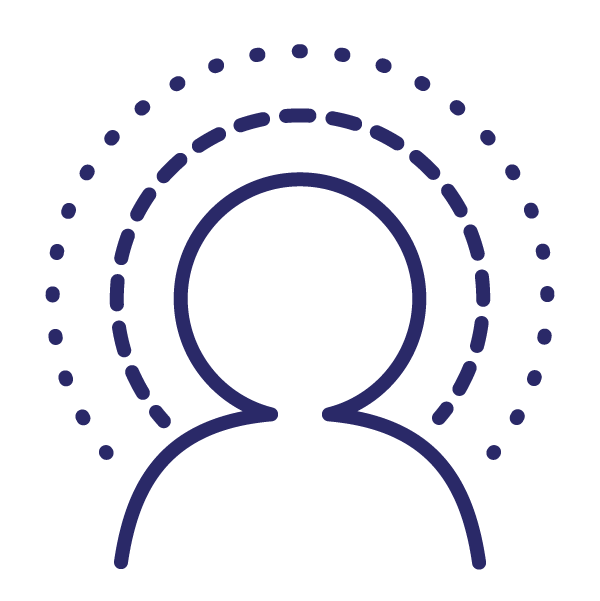
Finish the Year Strong
“It’s not how you start the race or where you are during the race, it is how you cross the finish line that will matter.”
-Robert D. Hales, American businessman
The year 2020 has been a year like none other. It has impacted people across the world either personally or professionally and taken a physical, mental and emotional toll. We are two thirds of the way through the year, so there is still time to turn things around. I’d like to highlight five steps I’m taking to finish the year strong. It is my hope that this is helpful to you as well.

Tip #1: Center the Mind
“Open the window of your mind. Allow the fresh air, new lights and new truths to enter.”
-Amit Ray, Indian author
Mindset and mindfulness are terms that are taking center stage in the business world as ways to be more productive and overcome personal and professional challenges. Both of these practices give credence to meditation and its ability to help with focus.
For years, Seattle Seahawks quarterback Russell Wilson and other professional athletes have been working with mental coach Trevor Moawad on developing and maintaining a neutral mindset by eliminating persistent negative thought. Moawad believes that a neutral mindset is more important than encouraging persistent positive thought because you focus on judgment-free thinking, which is crucial in pressure situations. Read It Takes What It Takes for more information.
Mental conditioning coach Iris Grimm suggests that we slow down our thoughts and anchor our mind in the present moment. Grimm suggests focusing on the five senses and strengthening the self-command muscle.
It’s easy to get swept under by the negativity. Daily news of the spread of COVID-19, various events that have resulted in racial and social unrest and the daily impact of the pandemic on all of us can take its toll. That’s why, now, it’s more important than ever to center yourself and clear your mind.
My Action Items to Finish Strong in this Area:
- Walk first thing in the morning four to five times a week to clear my mind
- Apply principles being taught by Moawad and Grimm
- Engage in meditation

Tip #2: Become More Self-Aware
“Knowing yourself is the beginning of all wisdom.”
-Aristotle
It is my belief that everything starts with self-awareness. Before we can be a better communicator, coach, mentor, manager or leader, we must be cognizant of what we do well (strengths) and where we need improvement (opportunities or “blind spots”). To do this, we must gain insights through personality inventories that can tell us more about these strengths and blind spots. We have a tool called the BEST2 AssessmentÔ that provides insights into your coaching and communication style, as well as how you make decisions. Click the link above to learn more and try it out for free.
Gallup has a tool called CliftonStrengths (formerly Strength Finders 2.0) that helps uncover your unique rank order of strengths that, if used, will make you more engaged, productive and happy at work.
Emotional Intelligence is another element of self-awareness that allows you to make strides in self-perception and expression. By completing an EQ (“emotional quotient”) inventory, receive insights that help you develop and maintain better social relationships and cope with challenges better.
There are plenty of other steps you can take, day in and day out, to become self-aware. Don’t feel like you have to be right in everything you do…it’s ok to be vulnerable and admit when you make a mistake. Ask questions to learn more.
My Action Items to Finish Strong in this Area:
- Ask for feedback from others (clients, colleagues, friends and family)
- Write (and revisit) personal and professional development objectives
- Engage in ongoing self-help activities and programs

Tip #3: Look for Silver Linings
“By walking on the right path, you create a golden fate for yourself and you also become a silver lining for others.”
-Mehmet Murat ildan, Turkish writer
This has been a challenging year for all of us in one or more ways. We’ve all had to change our routines, reinvent how we approach communication and look for new methods to stay productive.
When faced with extreme forms of adversity, it’s crucial to uncover “small wins” or “silver linings.” The first thing to do is redefine success. It may be necessary to rewrite your personal and professional goals and include milestones that celebrate the small wins on the way to the larger goals. This will help you stay focused on your ultimate, long-term goals and not get frustrated or complacent.
Entrepreneur Mike Regina has a motto of “Be Intentional with Everything.” To do this, we need to make sure we control the controllables and focus on what we can impact directly ourselves; we cannot worry about things that are outside of our sphere of influence.
The National Science Foundation reports that we have, on average, 60,000 thoughts in a day, 80% of which are negative. What if we were to flip it so 80% are positive? I believe Jon Gordon is the “king of positivity.” He has a Positive U podcast and various bestselling books on being positive like Energy Bus, Coffee Bean and The Power of a Positive Team, to name a few. By taking a positive approach to our day and life, we can control our thoughts, thus channeling our energy and efforts to positively impact others.
My Action Items to Finish Strong in this Area:
- Be more intentional with everything I do (communications, conversations, projects)
- Control the controllables
- Make sure at least 80% of my daily thoughts are positive

Tip #4: Build Momentum
“Consistency is the key to achieving and maintaining momentum.”
-Darren Hardy, American author
In the book Nine Lies About Work, Marcus Buckingham and Ashley Goodall talk about the term “High Potential” being a myth because of its inherent subjectivity. They believe that we all have potential and, as such, need to be focused instead on “momentum,” which is a byproduct of their research. It states that our inherent traits (“mass”), when combined with our accomplishments over time (“velocity”), comprise our momentum. Mass takes into account who you are and where you want to go in life (professionally), while velocity looks at our skills and experience, both acquired and desired (chosen/needed).
Following your passions and tapping into your talents and capabilities are both key to building momentum. Our company slogan is Unleash Your Talent®. We partner with our clients to help maximize what their employees have to offer by designing programs and training that stretch and challenge them. By focusing on helping employees uncover and demonstrate proficiency and leveraging aspects of Tips 1-3, momentum can be accelerated.
My Action Items to Finish Strong in this Area:
- Focus on my mass, velocity and momentum
- Share my passions with others
- Continue to uncover and maximize the talent for those with whom I collaborate

Tip #5: Pay It Forward
“No act of kindness, however small, is ever wasted.”
-Aesop, Greek fabulist and storyteller
Remember where you came from and give back in some capacity, whether it be financially or through the donation of your time. We read about “feel good” stories all the time of people who make financial contributions to their alma mater or a cause they support. Others feed the homeless or go on mission trips in an effort to assist the less fortunate and bring communities closer together.
I shared in a recent blog that my father’s health is not good. His Alzheimer’s is advancing. My brother, sister and I are working together to help him and my mother with decision-making, doctor’s visits and other day-to-day needs as things accelerate. It is the very least we can do to show our gratitude to the two people who raised us in a loving, caring and Christian home.
I am constantly looking for ways to help others. I coached all three of my children in the sports they played while growing up, and am now a volunteer mentor for an entrepreneur program that Emory University hosts. With all this being said, there is more I can do to pay it forward and help make a difference.
My Action Items to Finish Strong in this Area:
- Support important causes in the community
- Continue working with my siblings to help out my parents
- Align myself with others who have complementary “gifts”
Use your talents to help others who are aspiring to do something greater or just want to learn, grow and develop. You have special gifts, so make sure you share them!
